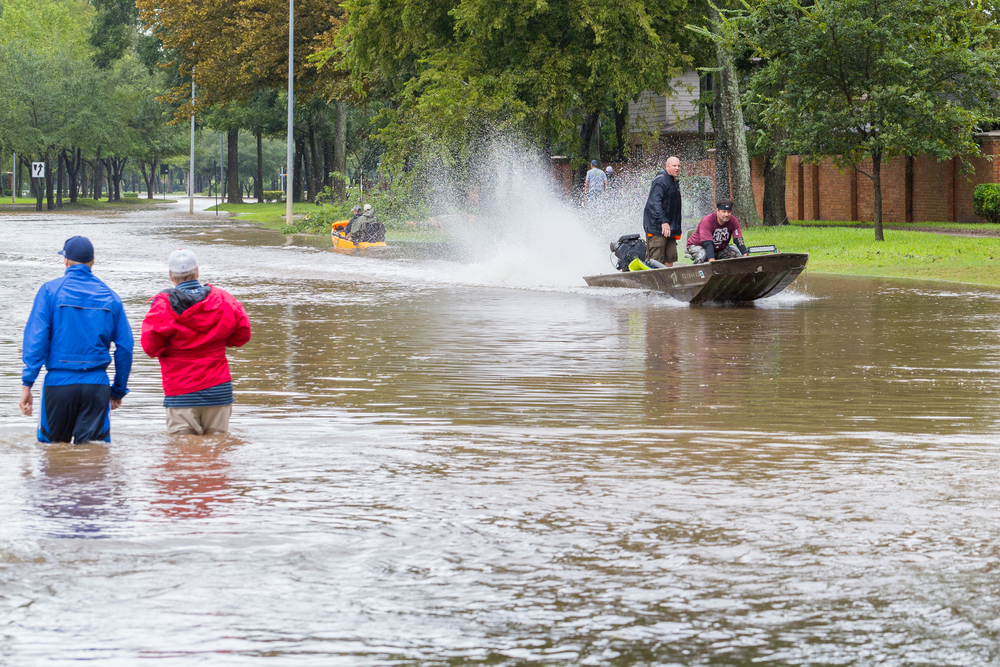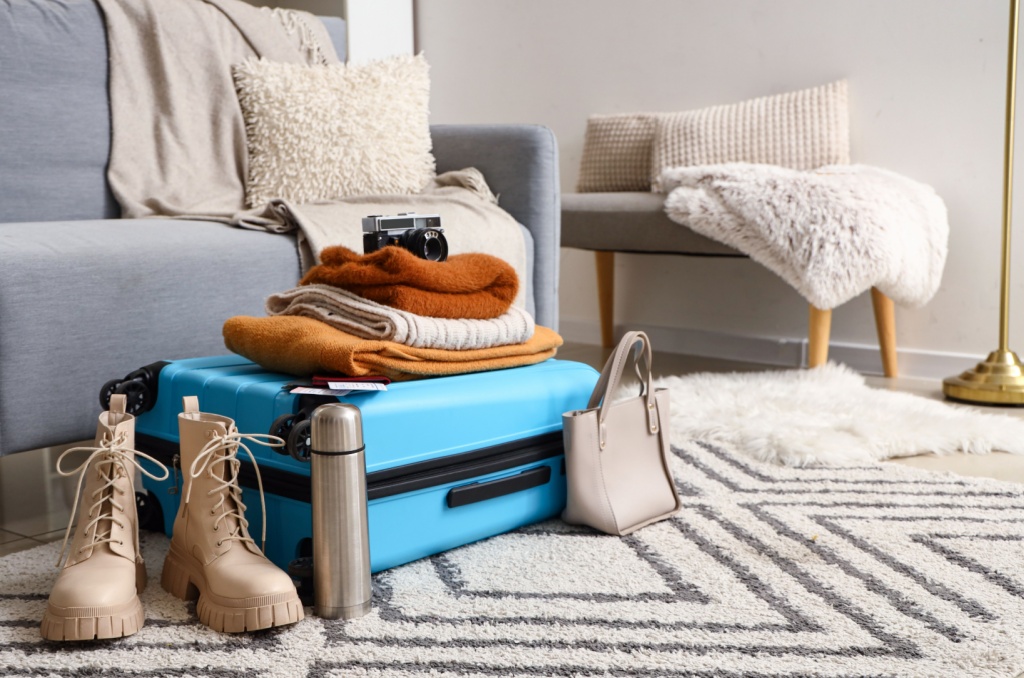First there was Harvey with its Category 4 rank in the world of mighty hurricanes; estimates suggest its damage costs are on par with Katrina’s. Now there’s Irma, already a Category 5 hurricane, making its way towards the southeastern coast as one of the most powerful Atlantic hurricanes on r

ecord. Jose seems to be gathering strength in the Atlantic Ocean and is likely to attain major hurricane status (with winds of 111 mph or greater) on Friday. Hurricane Katia has also turned into a Category 1 hurricane in the southwestern Gulf of Mexico and is anticipated to make landfall in eastern Mexico. The weather map is a scary place these days.
If you live in one of the areas where the disaster is imminent and the officials advise you to evacuate, do so. Nothing can stand in the way of winds of 185 mph and furious cloudbursts. Your home can be rebuilt, your life on the other hand...
It’s vital to know how to prepare for a hurricane, and that should happen right before
hurricane season starts—Pacific hurricane season starts May 15 and Atlantic hurricane season starts June 1.
- Create an emergency communication plan with your family before a hurricane.
- Stock up on emergency supplies at home, at work, as well as in the car.
- Check your insurance coverage—remember that damages caused by flooding are not covered under normal homeowner’s insurance policy.
- Know your local community’s evacuation plan and the evacuation routes
- Know how to receive alerts
- Do as local officials advise
When a storm approaches
- Have an application on your smartphone that can notify people about your location and if you need help. Add a first aid app too.
- Use hurricane shutters or if you don’t have any installed, board up the windows and doors.
- Clear gutters of debris.
- Check the garage door, it might need reinforcement.
- Turn the refrigerator to its coldest setting—the power might go off; this move will give your food some extra time before it spoils. Also, use a cooler if possible, to keep from opening the doors on the freezer/refrigerator.
- Fill a bathtub with water.
- Fill your car tank with gas.
- Review the evacuation plan with your family, make sure they all know what to do. Learn alternate routes, if there are any.
- Check on nearby (pet-friendly) shelters, you might need to head out that way.
- In case of severe flooding, put an axe in your attic.
- All important documents (birth certificates, passports, social security cards, deeds, etc.) should be stored in watertight containers.
- Add in there a current inventory of household property.
- If you need to leave the house, leave a note behind with the location you’re heading to.
- Unplug all appliances and electronics before you leave.
- Turn off electricity, gas and water, if possible.
Supplies
- Water, for minimum three days at one gallon per person per day
- Food, also for minimum three days—suggested foods include: canned meats, vegetables and juice, peanut butter, salt-free crackers, energy/protein bars, dry cereal, nuts, cookies. Don’t forget to add a can opener
- Flashlights with extra batteries
- A battery-powered radio
- First aid kit containing: latex gloves, sterile dressings, soap/cleaning agent, antibiotic ointment, burn ointment, adhesive bandages in various sizes, eye wash, thermometer, aspirin/pain reliver, small scissors, tweezers, petroleum jelly—add a seven-day supply of medications, too.
- Small fire extinguisher
- Cell phones and external batteries
- Sleeping bags for everyone in the house
- Cash
- Silver foil emergency blanket
- Map of the area
- Baby and pet supplies
- Insect repellent
- Rain gear
- Duct tape
- Dust masks
- Paper cups, plates and paper towels
- Activities for children
During the storm
- Check with a NOAA Weather Radio or the local news for latest updates
- Drive if only necessary and avoid flooded roads and washed out bridges
- Don’t get anywhere near dangling or loose power lines. Report them immediately to the power company.
- Use flashlights in the dark, avoid using candles
- Don’t drink nor cook with tap water, it might be contaminated
- Check the refrigerator for food spoilage. If in doubt, throw it out.
- Use the telephone only for emergency calls
Stay safe, everyone!
 ecord. Jose seems to be gathering strength in the Atlantic Ocean and is likely to attain major hurricane status (with winds of 111 mph or greater) on Friday. Hurricane Katia has also turned into a Category 1 hurricane in the southwestern Gulf of Mexico and is anticipated to make landfall in eastern Mexico. The weather map is a scary place these days.
If you live in one of the areas where the disaster is imminent and the officials advise you to evacuate, do so. Nothing can stand in the way of winds of 185 mph and furious cloudbursts. Your home can be rebuilt, your life on the other hand...
It’s vital to know how to prepare for a hurricane, and that should happen right before hurricane season starts—Pacific hurricane season starts May 15 and Atlantic hurricane season starts June 1.
ecord. Jose seems to be gathering strength in the Atlantic Ocean and is likely to attain major hurricane status (with winds of 111 mph or greater) on Friday. Hurricane Katia has also turned into a Category 1 hurricane in the southwestern Gulf of Mexico and is anticipated to make landfall in eastern Mexico. The weather map is a scary place these days.
If you live in one of the areas where the disaster is imminent and the officials advise you to evacuate, do so. Nothing can stand in the way of winds of 185 mph and furious cloudbursts. Your home can be rebuilt, your life on the other hand...
It’s vital to know how to prepare for a hurricane, and that should happen right before hurricane season starts—Pacific hurricane season starts May 15 and Atlantic hurricane season starts June 1.




